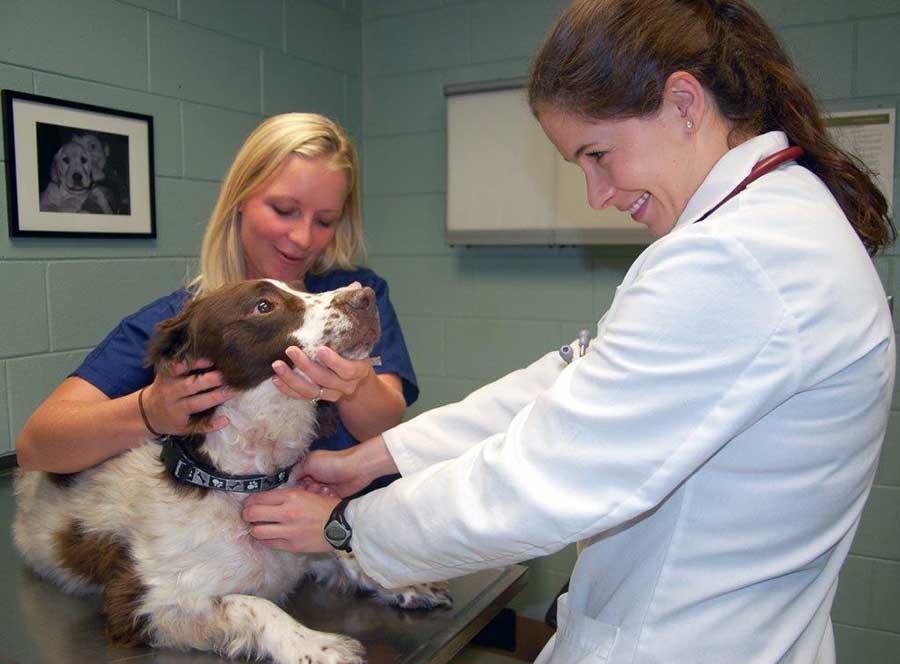The Integrated Canine Data Commons
The Integrated Canine Data Commons (ICDC) is a node in the larger NCI human Cancer Research Data Commons (CRDC). The Division of Cancer Treatment and Diagnosis (DCTD) developed the publicly available and searchable ICDC to incorporate genomic, proteomic, imaging, clinical trial, biomarker, population study, cancer model, and immuno-oncology data. This enables comparative analysis with tumors that arise spontaneously in pet dogs and advance research on human cancers.
Dog Oncology Grant Supplement (DOGS) Program
The DOGS Program supports collaborative, multidisciplinary research in canine oncology. It intersects with two or more of the following areas: immuno-oncology, radiation treatment, and imaging.
PRECINCT Research Network: PRE-medical Cancer Immunotherapy Network Canine Trials
In 2017, NCI granted five teams U01 awards (RFA-CA-17-001) and one team a U24 award (RFA-CA-17-002) to perform canine immunotherapy trials and correlative analyses. In 2022, the program was renewed with U01 awards (RFA-CA-21-050) issued to five new universities and a U24 award issued to the same team as in 2017 (RFA-CA-21-051).
Learn more about the PRECINCT Network.
Contact: Connie Sommers, PhD
Immuno-oncology Canine Clinical Trials
DCTD is developing novel immuno-oncology agents for use in clinical trials involving pet dogs with cancer to inform, optimize, and better understand the underlying biology and administration of these agents in human patients. These canine-specific reagents target promising immune regulatory proteins. They will be useful not only as therapeutics, both as monotherapies and in combination with other cancer treatments, but also for pharmacodynamic assays and as imaging agents.
This multi-year, multi-phase, coordinated project is a collaboration between DCTD and the NCI Center for Cancer Research Comparative Oncology Program (COP). It leverages the COP’s veterinary clinical trial infrastructure (Comparative Oncology Trials Consortium) to advance the DCTD canine drug development pipeline. Newly developed agents will ultimately be shared with the extramural comparative oncology community to further cancer research.
Longitudinal Studies in Dogs with Cancer
The purpose of these studies is to obtain longitudinal tumor specimens that can be analyzed to inform our understanding of the molecular basis of canine cancer progression. In addition, this work will help determine whether pet dogs are a reliable model for evaluating the effectiveness of investigational therapeutics and treatment regimens for potential future use in humans.
Goals
- Expand molecular studies to understand treatment and resistance throughout the development and evolution of malignant disease using pet dogs as a model
Objectives
- To longitudinally track individual dogs that may receive treatments and/or participate in clinical trials or receive no treatment at the request of the owner (to study the natural history of the cancer in molecular detail)
- To collect annotated canine cancer patient clinical/trial history and molecular characterization of biopsy material and blood at time of diagnosis, post-treatment, and at relapse. These will be used to to determine whether and in what circumstances naturally occurring tumors arise in dogs. They are good models of human cancer, tumor response, development of resistance to therapeutic regimens, and disease progression
